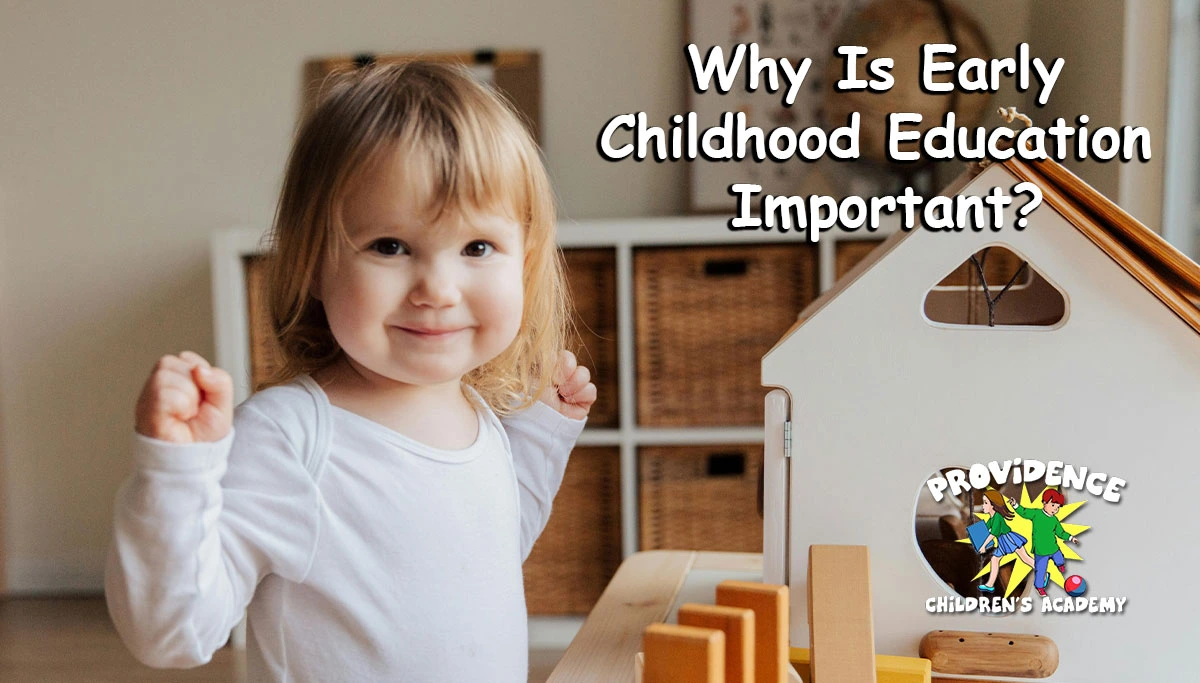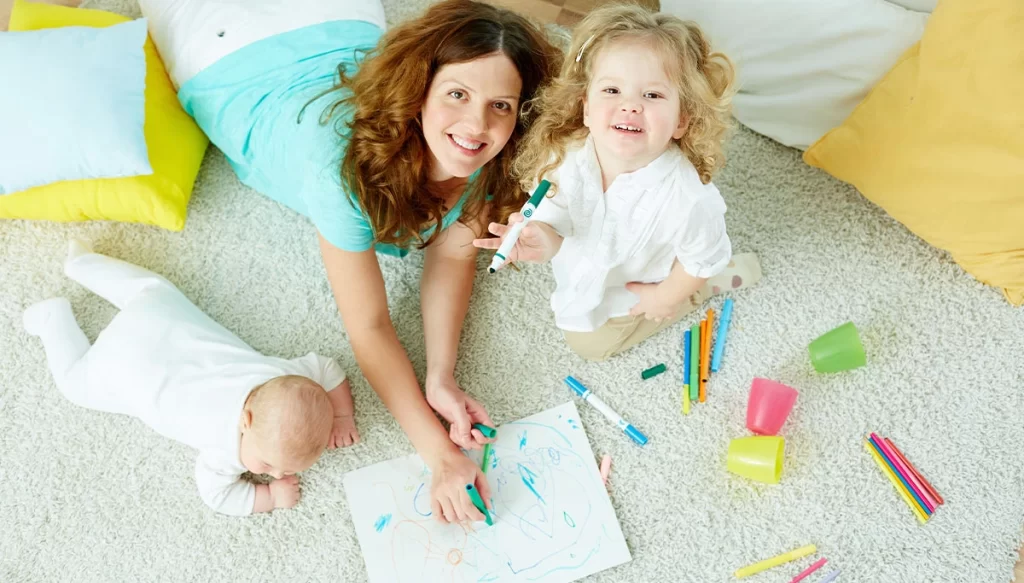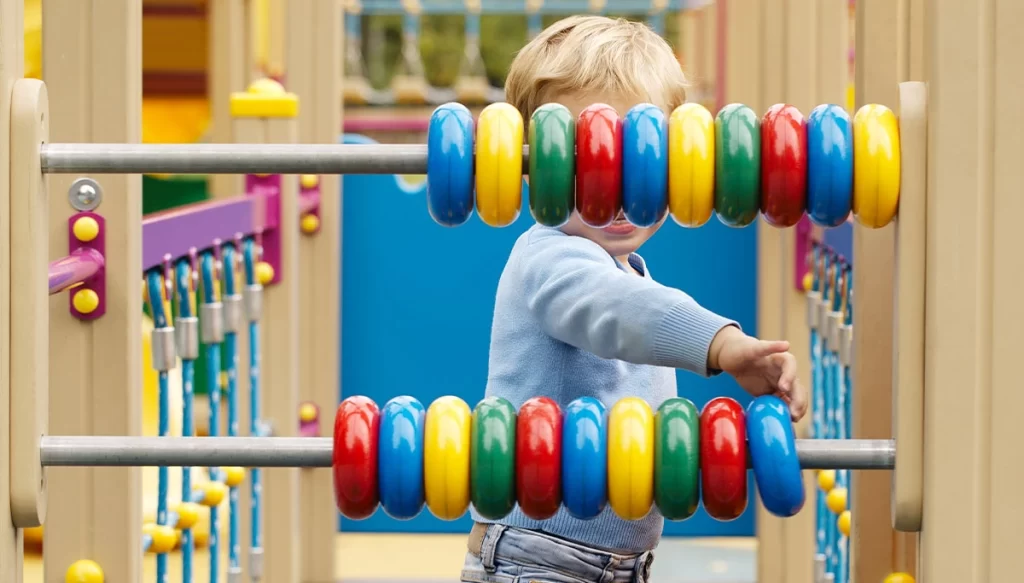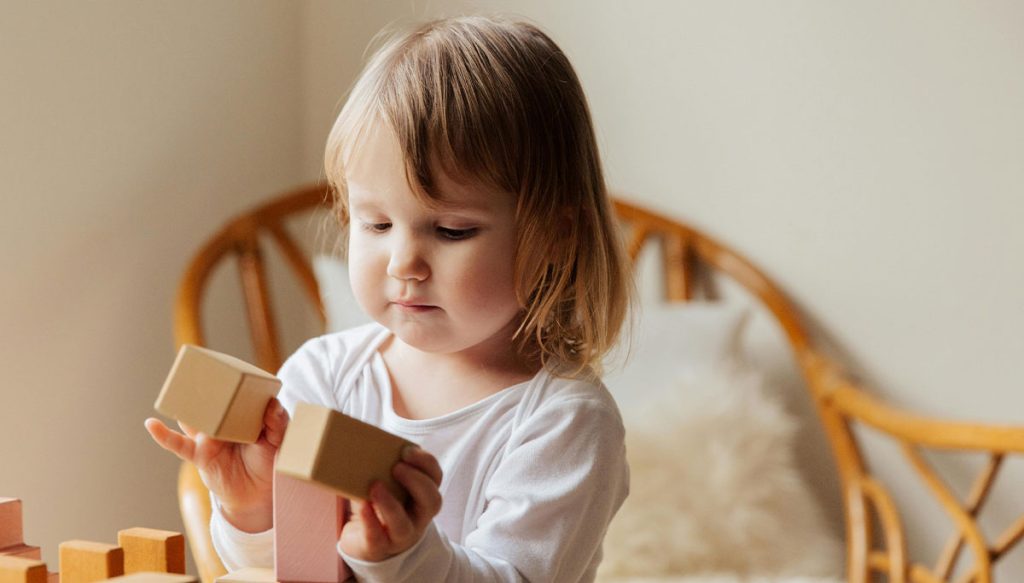
Early childhood education is an important developmental stages in your child’s life. The importance of their early learning experience cannot be understated, as it is in these years that children begin to learn faster, grow their social network, and transition into learning skills they will have for a lifetime. While this stage of growth may seem like a lot of play, this is the best way for young children to learn and develop. Through play, they’re developing curiosity, social skills, and fine and gross motor skills.
The Focus On Early Childhood Education

The early childhood years are what’s known as a critical period. In this time, the amount of knowledge and skills gained far exceeds any other period of time through to adulthood. One year in the life of a toddler makes a world of difference in terms of skills, knowledge, and essential functions. Because of this immense leap in knowledge, early learning facilities need to provide a space to foster this growth in a healthy environment.
So, how does an early education facility create this environment? The focus is on fostering cognitive development. Cognitive development includes many different underlying areas of development, all culminating in how a child’s brain becomes a sponge for information in the early years. Through play activities, the brain is worked like a muscle, stretching and learning with every new task. We’re going to explore each of these early learning facets in more depth.
Types of Early Learning Development

It’s important to note that early learning development doesn’t occur in isolation. Fine motor skills impact literacy, which is impacted by imagination, which can be impacted by social play. We view this development in unison, which is what makes the early learning facility’s environment so important.
- Social Skills: While children greatly develop at home, they likely haven’t experienced peer-to-peer social interaction without parents around. In the early learning years, children develop social skills that they put to the test daily as they’re around other children. Things like sharing, saying please and thank you, and acknowledging other children all come with time in a social environment like an early learning classroom.
- Emotional Skills: Along with social skills come emotional skills. This is often the first time that children are away from their parents for a prolonged amount of time, and emotional regulation can be difficult. In learning to share, emotions may be heightened. Learning how to manage emotions improves both emotional and social skills.
- Literacy Skills: Early literacy is a key skill, learned not only through the physical act of reading and writing, but also through storytelling and games. Encompassed within literacy skills is comprehension, an essential skill that is learned through stories, instructions, and the classroom environment in general.
- Fine Motor Skills: One of the largest uses of fine motor skills in an early education environment is learning how to hold a pencil. This can be achieved through coloring activities, finger painting, and a wide range of other arts and crafts that work by focusing on finger movements. In addition to holding pens, other fine skills like grasping and manipulating objects are learned passively through play in an early childhood education facility.
- Gross Motor Skills: Gross motor skills continue to develop throughout childhood, and in the early education years, they show themselves primarily in sports activities. Things like balance, running ability, and ball skills all develop in these early years, and it’s important for children to stay active and have fun while working on these skills.
- Fostering Curiosity: We’ve established that learning by play is the key road to cognitive development in early childhood education. Curiosity is the driver behind this desire to play and to interact with the world around them. Connections are made as they explore play-based learning, like seeing first-hand what effect gravity can have on dropped toys, what different plants are like during recess, and solving problems with spatial tasks.
Why Does The Early Learning Environment Matter?

A year in the life of a child is much longer than a year for us adults. They have so much information to take in, alongside new experiences and the new structure that comes with classroom learning. In this critical period, the environment that your child learns in is essential. It needs to have a balance of structure and creativity, allowing your child to get used to routines but also to explore and interact with the world around them.
These are foundational years. The cognitive growth that takes place in this period sets children up for future academic and social achievement. Studies have shown that quality early learning leads to later developmental success, following the child throughout life and into adulthood. This requires high-quality staff and a high-quality childhood education facility.
The curriculum of an early learning center should focus on play-based learning, while still integrating a solid learning plan. There are different levels of play-based learning, from entire student guided to teacher-coached. The element of routine in an early learning curriculum means that students aren’t entirely leading their own day, but they do have the independence to explore and experiment during activities in an environment that is stimulating for them.
This learning environment also continues at home. Reinforcing the curriculum at home helps children explore what they’ve learned in new environments, making learning something they can do everywhere and not just at school.
Commitment to Early Childhood Education at Providence Children’s Academy
At Providence Children’s Academy, we find the balance between a structured, educational curriculum and play-based learning. We know that these need to work in tandem to foster curiosity and exploration of your child’s world.
We pride ourselves on our high-quality childhood education facility, complete with safety features both inside and outside. Our staff are hands on and prepared for any emergency, and we keep class sizes small so your child gets individual learning attention in this critical period of development.
Contact us today at 954-570-6914 for a tour of our Coconut Creek Preschool.
